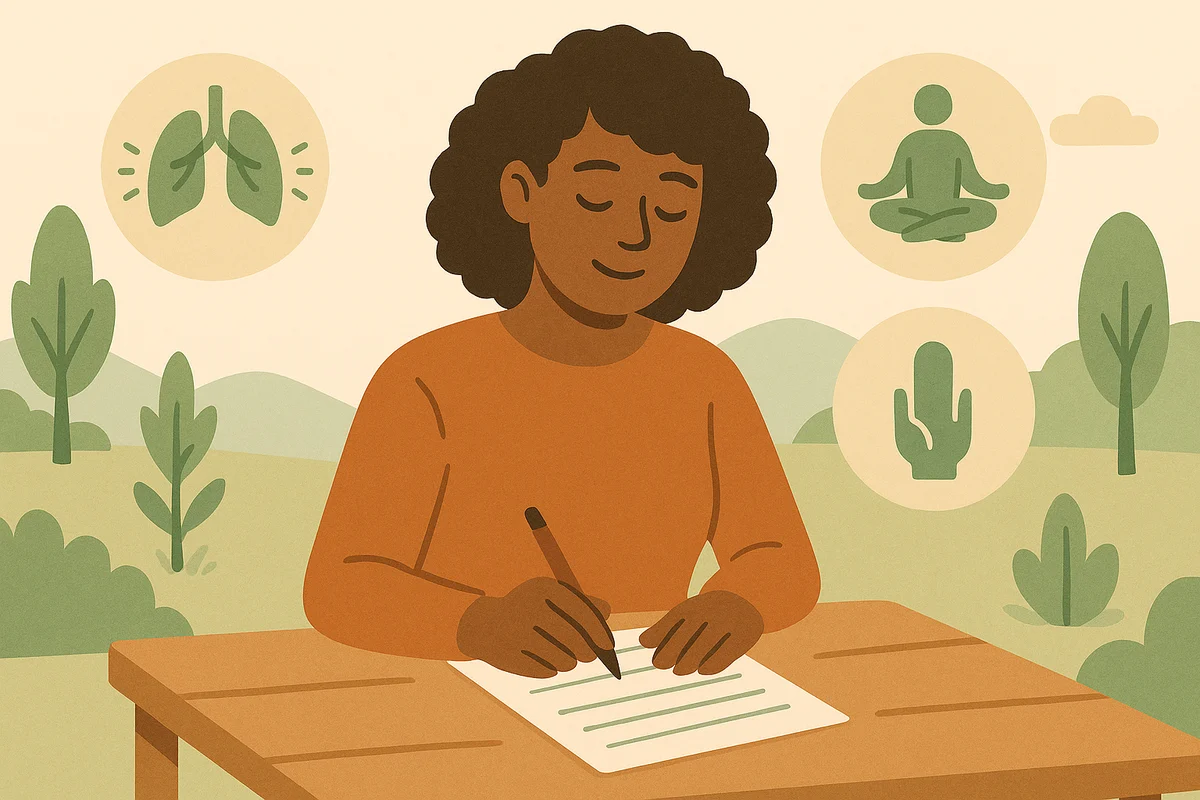Creating a "Social Event Prep" worksheet involves making a structured planning tool to help you manage anxiety, stress, or discomfort before upcoming social gatherings or events. This proactive approach helps you identify potential triggers, plan coping strategies, and build confidence with 10-20 minutes of focused preparation.

Social events can feel overwhelming when you don't know what to expect or how you'll handle challenging moments. You might worry about awkward conversations, feeling judged, or not knowing anyone at the gathering. These fears can build up before the event, making you want to avoid social situations entirely.
A Social Event Prep worksheet transforms uncertainty into confidence by creating a clear plan ahead of time. This anxiety preparation method helps you anticipate challenges and prepare effective responses, making social events feel more manageable and less scary.
Social Event Prep worksheets operate through several connected psychological mechanisms that reduce anxiety and improve social functioning. The core principle involves what behavioral researchers call "anxiety reduction through preparation," which decreases uncertainty and increases perceived control over challenging situations.
The technique leverages what psychologists term "cognitive rehearsal," which involves mentally practicing responses to potential social challenges before they occur. This preparation makes actual social interactions feel more familiar and manageable.
One fundamental mechanism involves what researchers call "uncertainty reduction," which addresses one of the primary drivers of social anxiety. Studies demonstrate that knowing what to expect and having planned responses significantly reduces anticipatory anxiety and improves social confidence.
The practice works through what cognitive scientists call "self-efficacy building," which involves developing confidence in your ability to handle social challenges. Having concrete plans and strategies increases your belief that you can manage difficult social moments effectively.
Worksheet preparation builds what researchers term "emotional regulation capacity," which is your ability to manage anxiety and stress during social interactions. Clinical research shows that people who prepare coping strategies in advance use them more effectively during actual social stress.
The framework addresses what social anxiety specialists call "catastrophic thinking," which involves imagining worst-case social scenarios. Structured preparation helps replace catastrophic thoughts with realistic planning and concrete solutions.
From a brain science perspective, preparation may reduce activation of the brain's threat detection system by providing the prefrontal cortex with clear plans and responses, reducing the need for emergency emotional reactions.
Additionally, having written strategies available prevents what psychologists call "cognitive overload," which occurs when social anxiety overwhelms your ability to think clearly and respond effectively in social situations.
"I can't predict what will happen at the event" - Focus on preparing for general social situations rather than specific scenarios. Prepare flexible strategies that work in multiple contexts rather than trying to plan for every possibility.
"My preparation makes me more anxious" - If detailed planning increases worry, try shorter, simpler preparation focusing only on one or two main coping strategies rather than comprehensive planning.
"I forget to use my strategies during the event" - Set phone reminders, bring written cues, or ask a trusted person at the event to gently remind you about your planned coping strategies.
"My social fears seem too big to prepare for" - Break large fears into smaller, manageable components and prepare for one piece at a time. Consider working with a therapist for support with severe social anxiety.
"I over-prepare and still feel anxious" - Some anxiety before social events is normal. The goal is management, not elimination. Focus on having tools available rather than achieving complete confidence.
"People notice I'm using preparation strategies" - Most coping strategies are invisible to others. If someone does notice, it often shows that you're taking care of yourself, which many people respect.